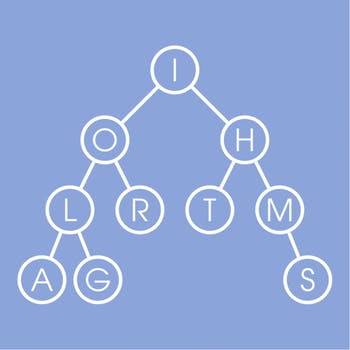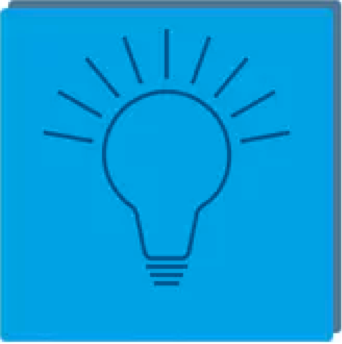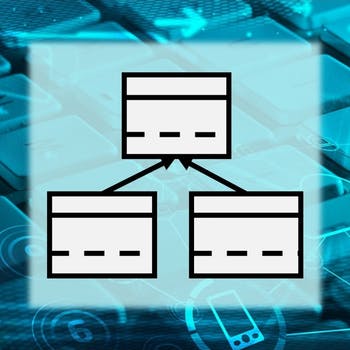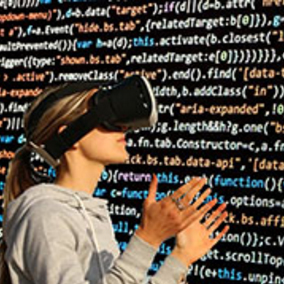-
Algorithms and Data Structures
You will learn algorithmic techniques for solving various computational problems through implementing over one hundred algorithmic coding problems in a programming language of your choice. -
 You will gain an understanding of what insights big data can provide through hands-on experience with the tools and systems used by big data scientists and engineers. You will be guided through the basics of using Hadoop with MapReduce, Spark, Pig and Hive. By following along with provided code, you will experience how one can perform predictive modeling and leverage graph analytics to model problems.
You will gain an understanding of what insights big data can provide through hands-on experience with the tools and systems used by big data scientists and engineers. You will be guided through the basics of using Hadoop with MapReduce, Spark, Pig and Hive. By following along with provided code, you will experience how one can perform predictive modeling and leverage graph analytics to model problems.
-
 When you complete this Specialization, you will learn how to answer many questions in modern biology that have become inseparable from the computational approaches used to solve them. You will also obtain a toolkit of existing software resources built on these computational approaches and that are used by thousands of biologists every day in one of the fastest growing fields in science.
When you complete this Specialization, you will learn how to answer many questions in modern biology that have become inseparable from the computational approaches used to solve them. You will also obtain a toolkit of existing software resources built on these computational approaches and that are used by thousands of biologists every day in one of the fastest growing fields in science.
-
 In this MicroMasters program, you will develop a well-rounded understanding of the mathematical and computational tools that form the basis of data science and how to use those tools to make data-driven business recommendations.
In this MicroMasters program, you will develop a well-rounded understanding of the mathematical and computational tools that form the basis of data science and how to use those tools to make data-driven business recommendations.
-

Data Structures and Algorithms
This specialization is a mix of theory and practice: you will learn algorithmic techniques for solving various computational problems and will implement about 100 algorithmic coding problems in a programming language of your choice. -
 You will learn how to design technologies that bring people joy, rather than frustration. You'll learn how to generate design ideas, techniques for quickly prototyping them, and how to use prototypes to get feedback from other stakeholders like your teammates, clients, and users. You'll also learn principles of visual design, perception, and cognition that inform effective interaction design.
You will learn how to design technologies that bring people joy, rather than frustration. You'll learn how to generate design ideas, techniques for quickly prototyping them, and how to use prototypes to get feedback from other stakeholders like your teammates, clients, and users. You'll also learn principles of visual design, perception, and cognition that inform effective interaction design.
-
 This Specialization covers the development of Internet of Things (IoT) products and services—including devices for sensing, actuation, processing, and communication—to help you develop skills and experiences you can employ in designing novel systems.
This Specialization covers the development of Internet of Things (IoT) products and services—including devices for sensing, actuation, processing, and communication—to help you develop skills and experiences you can employ in designing novel systems.
-

Introduction to Discrete Mathematics for Computer Science
Discrete Math is needed to see mathematical structures in the object you work
with, and understand their properties. This ability is important for software engineers, data scientists, security and financial analysts. -

Object Oriented Java Programming: Data Structures and Beyond
This Specialization covers intermediate topics in software development. You’ll learn object-oriented programming principles that will allow you to use Java to its full potential, and you’ll implement data structures and algorithms for organizing large amounts of data in a way that is both efficient and easy to work with. You’ll also practice critically evaluating your own code, and you’ll build technical communication skills that will help you prepare for job interviews and collaborative work as a software engineer. -

Teaching Impacts of Technology in K-12 Education Specialization
In this Specialization, you will learn impacts of computing concepts you need to know, organized into 5 distinct digital "worlds”, as well as learn pedagogical techniques and evaluate lesson plans and resources to utilize in your classroom. -
 This Professional Certificate program will teach you what VR devices exist, how VR technology works, and how to write software, often called VR experiences, for it. You will learn effective 3D interaction techniques to use VR applications, how to write VR applications in WebVR and Unity 3D, and what features make a VR application successful.
This Professional Certificate program will teach you what VR devices exist, how VR technology works, and how to write software, often called VR experiences, for it. You will learn effective 3D interaction techniques to use VR applications, how to write VR applications in WebVR and Unity 3D, and what features make a VR application successful.
-

Online Programs and Courses
.